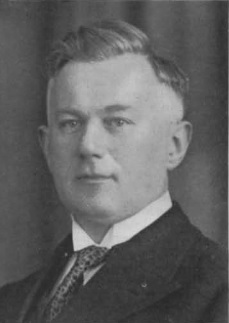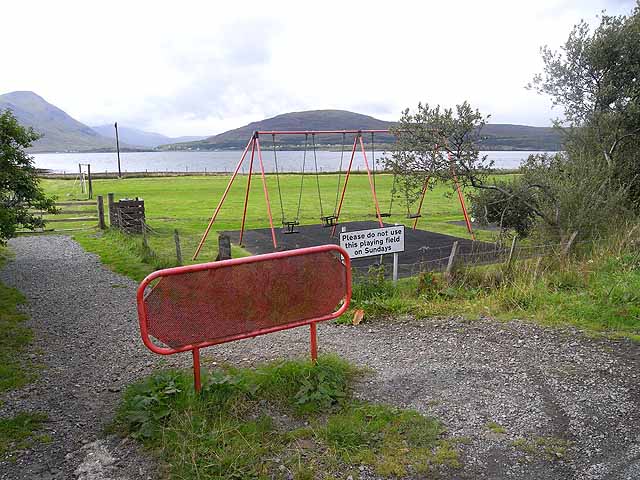|
Christian Democratic Union (Netherlands)
The Christian-Democratic Union (in Dutch: ''Christelijk-Democratische Unie'') was a minor progressive Protestant party in the Netherlands during the interbellum. History The CDU was formed in 1926 as a merger of three even smaller Christian left-wing parties, the Christian Social Party, the Christian Democratic Party and the League of Christian Socialists. It had one seat between 1929 and 1937 and two between 1937 and 1946. The party always was in opposition. It was linked to the minor denomination Reformed Churches in Repaired Union (Dutch: Gereformeerde Kerken in Hersteld Verband), which split from the mainstream Reformed churches, because of its pacifism. The Synod of the reformed church therefore decreed disciplinary measures against members of the CDU. After World War II, the party joined the newly founded Partij van de Arbeid. In the 1950s many members left to join the pacifist PSP because of the relatively right-wing course of the PvdA. Ideology The CDU stood for ... [...More Info...] [...Related Items...] OR: [Wikipedia] [Google] [Baidu] |
Harm Van Houten
Harm van Houten (1892, Boksum, Friesland - 1952) was a Dutch politician. See also *List of Dutch politicians A list of most notable Dutch politicians, party affiliation given. A * Willem Aantjes - ARP / CDA * Gijs van Aardenne - VVD * Jan van Aartsen - VVD * Jozias van Aartsen - VVD * Ahmed Aboutaleb - PvdA *Karin Adelmund - PvdA * Fleur Agema - ... 1892 births 1952 deaths People from Menaldumadeel Anti-Revolutionary Party politicians Christian Democratic Union (Netherlands) politicians {{Netherlands-politician-stub ... [...More Info...] [...Related Items...] OR: [Wikipedia] [Google] [Baidu] |
Synod
A synod () is a council of a Christian denomination, usually convened to decide an issue of doctrine, administration or application. The word '' synod'' comes from the meaning "assembly" or "meeting" and is analogous with the Latin word meaning "council". Originally, synods were meetings of bishops, and the word is still used in that sense in Catholicism, Oriental Orthodoxy and Eastern Orthodoxy. In modern usage, the word often refers to the governing body of a particular church, whether its members are meeting or not. It is also sometimes used to refer to a church that is governed by a synod. Sometimes the phrase "general synod" or "general council" refers to an ecumenical council. The word ''synod'' also refers to the standing council of high-ranking bishops governing some of the autocephalous Eastern Orthodox churches. Similarly, the day-to-day governance of patriarchal and major archiepiscopal Eastern Catholic Churches is entrusted to a permanent synod. Usages i ... [...More Info...] [...Related Items...] OR: [Wikipedia] [Google] [Baidu] |
1929 Dutch General Election
General elections were held in the Netherlands on 3 July 1929.Dieter Nohlen & Philip Stöver (2010) ''Elections in Europe: A data handbook'', p1395 The Roman Catholic State Party remained the largest party in the House of Representatives, winning 30 of the 100 seats.Nohlen & Stöver, p1412 Results References {{Dutch general elections General elections in the Netherlands Netherlands ) , anthem = ( en, "William of Nassau") , image_map = , map_caption = , subdivision_type = Sovereign state , subdivision_name = Kingdom of the Netherlands , established_title = Before independence , established_date = Spanish Neth ... 1929 in the Netherlands July 1929 events 1929 elections in the Netherlands ... [...More Info...] [...Related Items...] OR: [Wikipedia] [Google] [Baidu] |
House Of Representatives (Netherlands)
The House of Representatives (, pronounced ; commonly referred to as the ', literally "Second Chamber of the States General") is the lower house of the bicameral parliament of the Netherlands, the States General, the other one being the Senate. It has 150 seats, which are filled through elections using party-list proportional representation. Generally, the house is located in the Binnenhof in The Hague, however, it has temporarily moved to the former building of the Ministry of Foreign Affairs at Bezuidenhoutseweg 67 in the Hague while the Binnenhof is being renovated. Name Although the body is officially called the "House of Representatives" in English, it is not a direct translation of its official Dutch name, the "Second Chamber of the States General", "Second Chamber" or more colloquially just the "Chamber". Rather than "representative" (''afgevaardigde''), a member of the House is referred to as ''(Tweede) Kamerlid'', or "member of the (Second) Chamber". Functions The H ... [...More Info...] [...Related Items...] OR: [Wikipedia] [Google] [Baidu] |
Sabbath In Christianity
Sabbath in Christianity is the inclusion in Christianity of a Sabbath, a day set aside for rest and worship, a practice that was mandated for the Israelites in the Ten Commandments in line with God's blessing of the seventh day (Saturday) making it holy, "because on it God rested from all his work that he had done in creation". The practice was associated with the assembly of the people to worship in synagogues on the day known as Shabbat. Early Christians, at first mainly Jewish, observed the seventh-day Sabbath with prayer and rest, but gathered on the seventh day, Saturday, reckoned in Jewish tradition as beginning, like the other days, at sunset on what would now be considered the Friday evening. At the beginning of the second century Ignatius of Antioch approved non-observance of the Sabbath. The now majority practice of Christians is to observe Sunday, called the Lord's Day, rather than the Jewish seventh-day Sabbath as a day of rest and worship. Possibly because of a moveme ... [...More Info...] [...Related Items...] OR: [Wikipedia] [Google] [Baidu] |
Christian Democracy
Christian democracy (sometimes named Centrist democracy) is a political ideology that emerged in 19th-century Europe under the influence of Catholic social teaching and neo-Calvinism. It was conceived as a combination of modern democratic ideas and traditional Christian values, incorporating social justice and the social teachings espoused by the Catholic, Lutheran, Reformed, Pentecostal, and other denominational traditions of Christianity in various parts of the world. After World War II, Catholic and Protestant movements of neo-scholasticism and the Social Gospel shaped Christian democracy. On the traditional left-right political spectrum Christian Democracy has been difficult to pinpoint as Christian democrats rejected liberal economics and individualism and advocated state intervention, but simultaneously defended private property rights against excessive state intervention. This has meant that Christian Democracy has historically been considered centre left on eco ... [...More Info...] [...Related Items...] OR: [Wikipedia] [Google] [Baidu] |
Nationalisation
Nationalization (nationalisation in British English) is the process of transforming privately-owned assets into public assets by bringing them under the public ownership of a national government or state. Nationalization usually refers to private assets or to assets owned by lower levels of government (such as municipalities) being transferred to the state. Nationalization contrasts with privatization and with demutualization. When previously nationalized assets are privatized and subsequently returned to public ownership at a later stage, they are said to have undergone renationalization. Industries often subject to nationalization include the commanding heights of the economy – telecommunications, electric power, fossil fuels, railways, airlines, iron ore, media, postal services, banks, and water – though, in many jurisdictions, many such entities have no history of private ownership. Nationalization may occur with or without financial compensation to the former ... [...More Info...] [...Related Items...] OR: [Wikipedia] [Google] [Baidu] |
Redistribution (economics)
In economics, distribution is the way total output, income, or wealth is distributed among individuals or among the factors of production (such as labour, land, and capital). In general theory and in for example the U.S. National Income and Product Accounts, each unit of output corresponds to a unit of income. One use of national accounts is for classifying factor incomes and measuring their respective shares, as in national Income. But, where focus is on income of ''persons'' or ''households'', adjustments to the national accounts or other data sources are frequently used. Here, interest is often on the fraction of income going to the top (or bottom) ''x'' percent of households, the next ''x'' percent, and so forth (defined by equally spaced cut points, say quintiles), and on the factors that might affect them (globalization, tax policy, technology, etc.). Descriptive, theoretical, scientific, and welfare uses Income distribution can describe a prospectively observable el ... [...More Info...] [...Related Items...] OR: [Wikipedia] [Google] [Baidu] |
Karl Barth
Karl Barth (; ; – ) was a Swiss Calvinist theologian. Barth is best known for his commentary '' The Epistle to the Romans'', his involvement in the Confessing Church, including his authorship (except for a single phrase) of the Barmen Declaration, and especially his unfinished multi-volume theological summa the '' Church Dogmatics'' (published between 1932–1967). Barth's influence expanded well beyond the academic realm to mainstream culture, leading him to be featured on the cover of ''Time'' on 20 April 1962. Like many Protestant theologians of his generation, Barth was educated in a liberal theology influenced by Adolf von Harnack, Friedrich Schleiermacher and others. His pastoral career began in the rural Swiss town of Safenwil, where he was known as the "Red Pastor from Safenwil". There he became increasingly disillusioned with the liberal Christianity in which he had been trained. This led him to write the first edition of his '' The Epistle to the Romans'' (a.k.a. ... [...More Info...] [...Related Items...] OR: [Wikipedia] [Google] [Baidu] |
Bible
The Bible (from Koine Greek , , 'the books') is a collection of religious texts or scriptures that are held to be sacred in Christianity Christianity is an Abrahamic monotheistic religion based on the life and teachings of Jesus of Nazareth. It is the world's largest and most widespread religion with roughly 2.38 billion followers representing one-third of the global popula ..., Judaism, Samaritanism, and many other religions. The Bible is an anthologya compilation of texts of a variety of forms originally written in Hebrew, Aramaic, and Koine Greek. These texts include instructions, stories, poetry, and prophecies, among other genres. The collection of materials that are accepted as part of the Bible by a particular religious tradition or community is called a biblical canon. Believers in the Bible generally consider it to be a product of divine inspiration, but the way they understand what that means and interpret the text can vary. The religious texts ... [...More Info...] [...Related Items...] OR: [Wikipedia] [Google] [Baidu] |
Justice
Justice, in its broadest sense, is the principle that people receive that which they deserve, with the interpretation of what then constitutes "deserving" being impacted upon by numerous fields, with many differing viewpoints and perspectives, including the concepts of moral correctness based on ethics, rationality, law, religion, equity and fairness. The state will sometimes endeavor to increase justice by operating courts and enforcing their rulings. Early theories of justice were set out by the Ancient Greek philosophers Plato in his work The Republic, and Aristotle in his Nicomachean Ethics. Advocates of divine command theory have said that justice issues from God. In the 1600s, philosophers such as John Locke said that justice derives from natural law. Social contract theory said that justice is derived from the mutual agreement of everyone. In the 1800s, utilitarian philosophers such as John Stuart Mill said that justice is based on the best outcomes for the gr ... [...More Info...] [...Related Items...] OR: [Wikipedia] [Google] [Baidu] |
Right-wing Politics
Right-wing politics describes the range of political ideologies that view certain social orders and hierarchies as inevitable, natural, normal, or desirable, typically supporting this position on the basis of natural law, economics, authority, property or tradition.T. Alexander Smith, Raymond Tatalovich. ''Cultures at war: moral conflicts in western democracies''. Toronto, Canada: Broadview Press, Ltd, 2003. p. 30. "That viewpoint is held by contemporary sociologists, for whom 'right-wing movements' are conceptualized as 'social movements whose stated goals are to maintain structures of order, status, honor, or traditional social differences or values' as compared to left-wing movements which seek 'greater equality or political participation.' In other words, the sociological perspective sees preservationist politics as a right-wing attempt to defend privilege within the ''social hierarchy''."''Left and right: the significance of a political distinction'', Norberto Bobbi ... [...More Info...] [...Related Items...] OR: [Wikipedia] [Google] [Baidu] |





.jpg)

